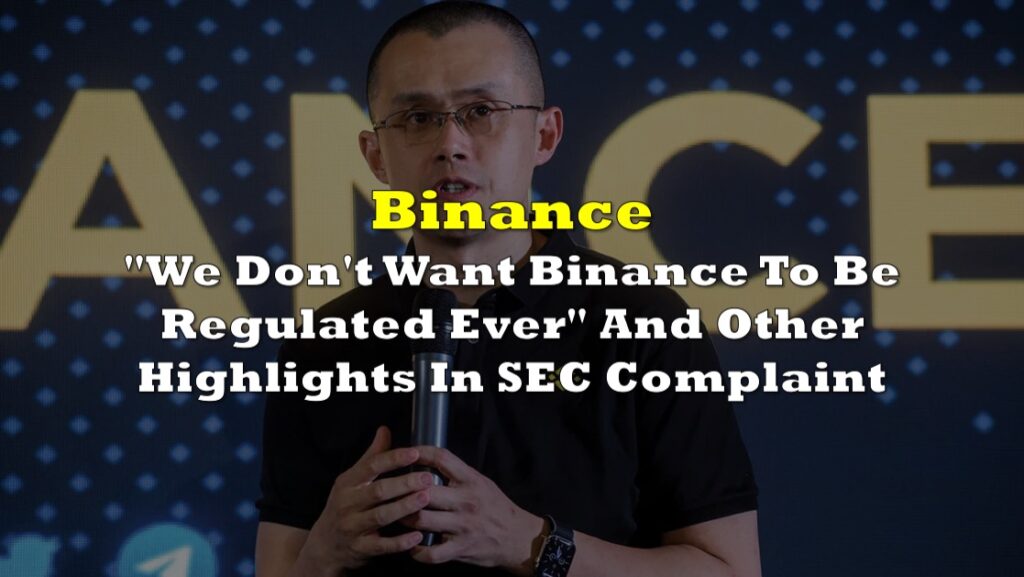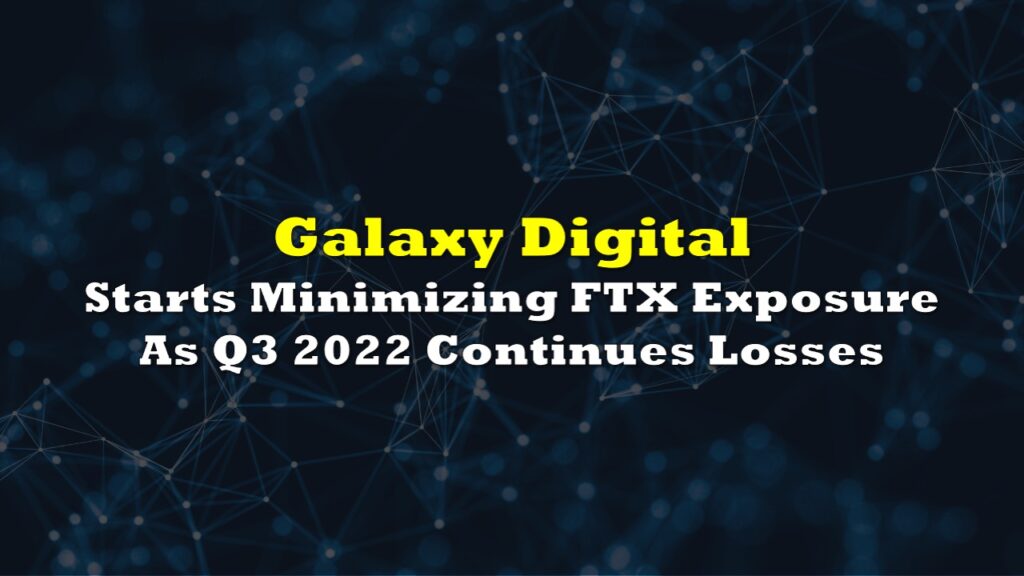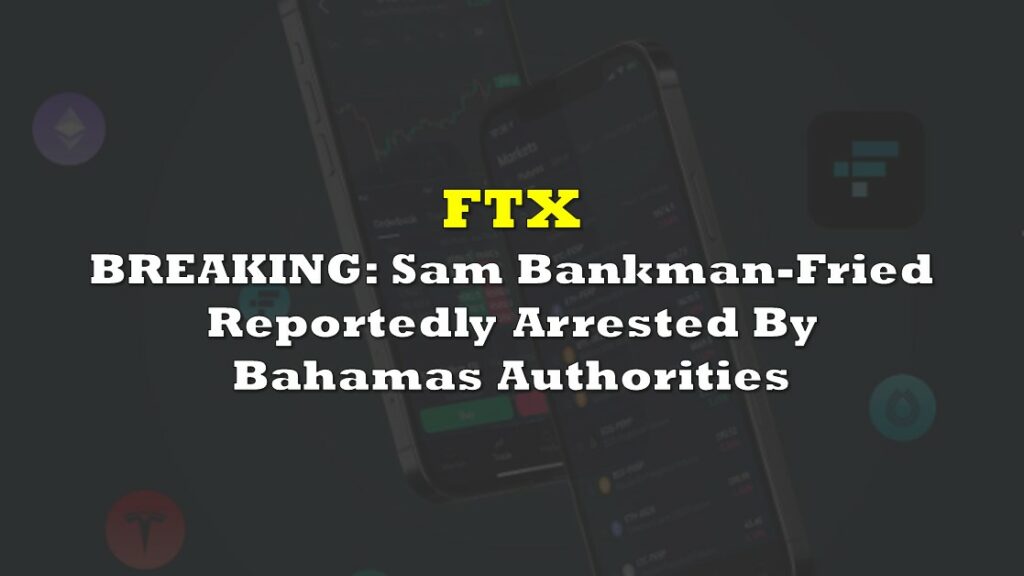Binance CEO Changpeng Zhao claimed they have no debt after pulling out of the FTX acquisition; CEO Sam Bankman-Fried warns bankruptcy threat looms
The crypto twitter drama that started with a feud between the chief executives of two of the biggest crypto exchanges presumably ended with a potential acquisition. But just as how quickly it sparked and resolved, the “fight-not-fight” is rapidly blazing again–and this time, it might take the industry with it.
Here’s where we are: chapter two of the story starts with Zhao essentially backing out of plans to acquire FTX, which was purported before as answering a call for “help” to address the latter’s “liquidity crunches.”
In a statement posted on twitter by Binance, the firm said FTX’s issues “are beyond our control or ability to help.” Without going into specifics, the exchange added that it believes “in time that outliers that misuse user funds will be weeded out by the free market”–short of directly claiming that FTX mismanaged its assets.
The China-based crypto exchange, however, added ironically its belief that “every time a major player in an industry fails, retail consumers will suffer” in the same thread it announced the pull out from the acquisition plans.
In the beginning, our hope was to be able to support FTX’s customers to provide liquidity, but the issues are beyond our control or ability to help.
— Binance (@binance) November 9, 2022
As regulatory frameworks are developed and as the industry continues to evolve toward greater decentralization, the ecosystem will grow stronger.
— Binance (@binance) November 9, 2022
READ: Crypto Drama: FTX And Its Growing Red Flags
The acquisition announcement–which happened just days after the two crypto moguls were trading shade on twitter–is held by a non-binding letter of intent to acquire FTX. The Binance chief then underscored it “has the discretion to pull out from the deal at any time.”
Zhao added color to the acquisition plans. On a post relaying the supposed note sent to employees, he reminded everyone to “not trade FTT tokens”–something he immediately directed the organization to do after his call with Bankman-Fried.
He also reiterated that the Binance management “did not master plan this or anything related to it.”
In the spirit of transparency, might as well share the actual note, sent to all Binance team globally a few hours ago.https://t.co/IUNkPcLC8T pic.twitter.com/XGlIJB7EV5
— CZ 🔶 Binance (@cz_binance) November 9, 2022
FTX headed for bankruptcy; Bankman-Fried: “I f*cked up twice”
It is unclear the extent of the specific problems FTX is facing that would make Binance turn away from the acquisition deal aside from the “outliers that misuse user funds will be weeded out” quip. But Bloomberg reports, based on sources familiar with the situation, that Bankman-Fried reportedly told investors on a call: “I f*cked up.”
The FTX chief notified investors that his cryptocurrency exchange was facing a shortfall of up to $8 billion and needed $4 billion to stay afloat.
Bankman-Fried tweeted the same, admitting he “should have done better.”
2) I also should have been communicating more very recently.
— SBF (@SBF_FTX) November 10, 2022
Transparently–my hands were tied during the duration of the possible Binance deal; I wasn't particularly allowed to say much publicly. But of course it's on me that we ended up there in the first place.
He then proceeded to explain in a twitter thread the current situation of the crypto exchange, starting with delineating that FTX US is “fine” and “100% liquid” and all the concern is just about the “non-US exchange” FTX International.
While FTX has a total market value higher than deposits, Bankman-Fried admitted that not all of these assets or collateral are “liquidity for delivery.”
“The full story here is one I’m still fleshing out every detail of, but as a very high level, I f*cked up twice,” the FTX chief admitted. He further owned up to his two mistakes: a poor internal labeling of bank-related accounts that gave him a false sense of margin (twice) and not communicating the concern enough.
5) The full story here is one I'm still fleshing out every detail of, but as a very high level, I fucked up twice.
— SBF (@SBF_FTX) November 10, 2022
The first time, a poor internal labeling of bank-related accounts meant that I was substantially off on my sense of users' margin. I thought it was way lower.
7) And so I was off twice.
— SBF (@SBF_FTX) November 10, 2022
Which tells me a lot of things, both specifically and generally, that I was shit at.
And a third time, in not communicating enough. I should have said more. I'm sorry–I was slammed with things to do and didn't give updates to you all.
Bankman-Fried then proceeded to try assuring the investors that his “#1 priority–by far–is doing right by users.” He relayed that FTX has been “doing everything [it] can to raise liquidity.”
“I can’t make any promises about that. But I’m going to try,” he added. He also promised that every penny, even from the existing collateral, will “go straight to users.”
14) So, what does this mean going forward?
— SBF (@SBF_FTX) November 10, 2022
I'm not sure–that depends on what happens over the next week.
But here are some things I know.
Moving forward, Bankman-Fried bluntly said he’s not sure of what will happen based on what will transpire over the next week. However, he enumerated some changes: Alameda Research is winding down trading, FTX will prioritize “radical transparency” if it continues operating, and a hard review on FTX governance will occur which can include him stepping down.
But of course, his thread did not end without further shade to Zhao, yielding to his “sparring partner” by saying “well played; you won.”
20) At some point I might have more to say about a particular sparring partner, so to speak.
— SBF (@SBF_FTX) November 10, 2022
But you know, glass houses. So for now, all I'll say is:
well played; you won.
However, it seems that missed margin estimates aren’t the only concern in FTX’s downfall. A Wall Street Journal source reported that Bankman-Fried confirmed Alameda Research owes FTX about $10 billion–presumably what the hedge fund used on “risky bets.” This partially confirms the report on alleged insolvency which the hedge fund chief Caroline Ellison tried to refute.
All in all, FTX had $16 billion in customer assets, according to the person, so FTX lent more than half of its customer funds to its sister company Alameda.
— db (@tier10k) November 10, 2022
man wtf
– the balance sheet breaks out a few of our biggest long positions; we obviously have hedges that aren’t listed
— Caroline (@carolinecapital) November 6, 2022
– given the tightening in the crypto credit space this year we’ve returned most of our loans by now
The FTX founder also saw his own net worth crashing. According to the Bloomberg billionaires index, Bankman-Fried is now worth $991 million, down from $16 billion just yesterday following the crash of FTT token.
I have decided to do a GoFundMe for Sam Bankman-Fried to help him through this tough time. @SBF_FTX pic.twitter.com/StcIBCDtcy
— SmallCapSteve (@smallcapsteve) November 10, 2022
While the crypto drama between the chief executives ensues, FTX’s FTT token has fallen down to below the $3.00-mark–a huge drop from averaging at around $22.00 before the whole brouhaha began. In a leaked Telegram message, Bankman-Fried reportedly relayed to his team that withdrawals are “effectively paused.”

As if rubbing salt to the $8-billion crypto wound, Binance tweeted the balances of its top cold addresses as part of its “commitment to transparency.”
“These were public before anyway, but organized together for your ease of viewing,” Zhao quipped in his tweet.
This is while we are waiting for the proof-of-reserves to finish. Waiting on a vendor that everyone uses. But it seems like may take weeks, we might try to find someone else.
— CZ 🔶 Binance (@cz_binance) November 10, 2022
When asked about disclosure of the crypto exchange’s liabilities, the Binance chief simply replied: “we don’t have debt.”
We don't have debt.
— CZ 🔶 Binance (@cz_binance) November 10, 2022
This doubles down to Zhao’s earlier tweet about the “two big lessons” he wanted to impart during the whole ordeal–back when Binance was still in play for acquiring FTX: not using token you created as collateral and not taking debts if you’re running a crypto business. Both of the said “lessons” are applicable to the reportedly insolvent Alameda Research, FTX’s sister hedge fund, which is rumored to have most of its assets tied to FTT token and other digital assets that are related to Bankman-Fried.
Two big lessons:
— CZ 🔶 Binance (@cz_binance) November 8, 2022
1: Never use a token you created as collateral.
2: Don’t borrow if you run a crypto business. Don't use capital "efficiently". Have a large reserve.
Binance has never used BNB for collateral, and we have never taken on debt.
Stay #SAFU.🙏
It is also worth noting that FTX and Bankman-Fried are being investigated by Texas’ securities commission for allegedly offering unregistered securities related to “crypto yield farming” accounts. The US Securities and Exchange Commission and the Commodity Futures Trading Commission are also reportedly expanding its probe on the crypto exchange to include its handling of customers’ funds during the highly-publicized liquidity crunch.
FTX Japan, however, was reportedly ordered by the country’s regulator to suspend operations after halting all withdrawals, according to a Coindesk report.
The feud reverberating to the rest of the crypto space
While the drama is mainly between these two crypto giants, the effects in the real world are felt by the rest of the industry. The FTT crash has been sending unrealized losses expected to be recorded on the next earnings releases.
Liquid Meta (NEO: LIQD) is said to have total assets worth $7.5 million held at FTX while Galaxy Digital Holdings Ltd. (TSX: GLXY) has around US$76.8 million in cash and digital assets invested, around US$47.5 million of which is in the process of being withdrawn.
Sequioa Capital made a preemptive move and marked down its FTX investment to $0, which costs the firm around $213.5 million across two funds.
Here is the note we sent to our LPs in GGFIII regarding FTX. pic.twitter.com/Cgp1Yxk1pz
— Sequoia Capital (@sequoia) November 10, 2022
Prices of other digital coins like bitcoin and ether have also been affected, falling even lower than the “crypto winter” level during the whole ordeal.


Tether also froze FTX’s USDT holdings, as the stablecoin’s dollar peg was momentarily threatened to fall sub-$1.00 related to the FTT crash.
Tether has just frozen FTX's USDT pic.twitter.com/G4gdl2wMqt
— Pentoshi 🐧 (@Pentosh1) November 10, 2022

As always, caught in the middle are the investors who can’t withdraw their losing crypto holdings in FTX. Bankman-Fried’s apology coupled with “I’m not sure” as to where things could go and tentative plans to secure liquidity–it’s the perfect recipe for a well-deserved retort from the crypto public.
And then, maybe, the feud will go beyond the two crypto exchanges.
Information for this briefing was found via the sources mentioned. The author has no securities or affiliations related to this organization. Not a recommendation to buy or sell. Always do additional research and consult a professional before purchasing a security. The author holds no licenses.









